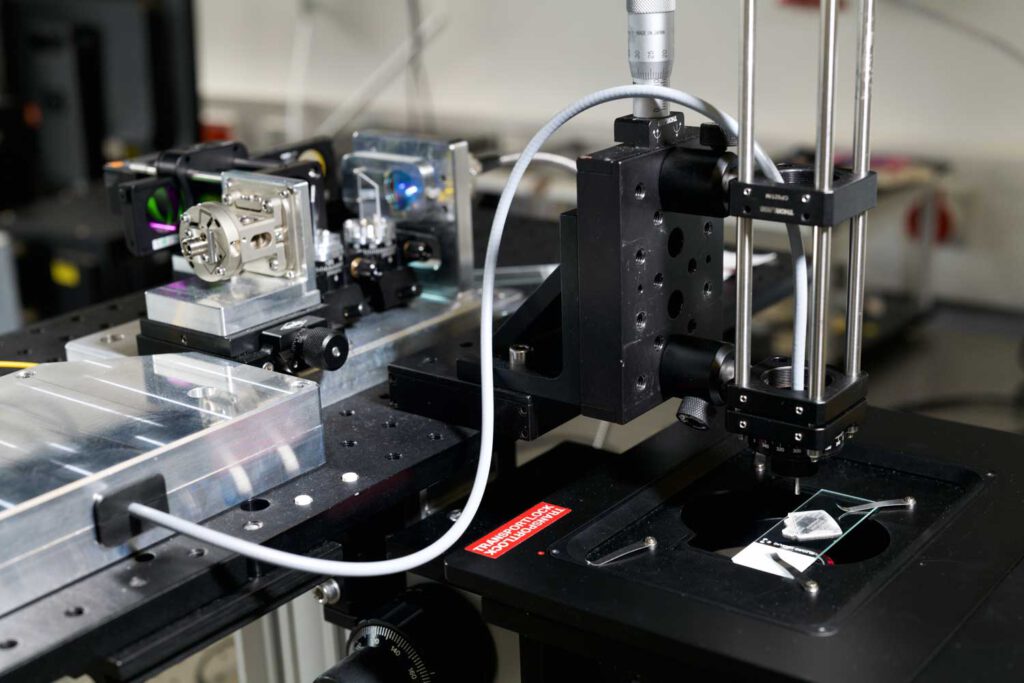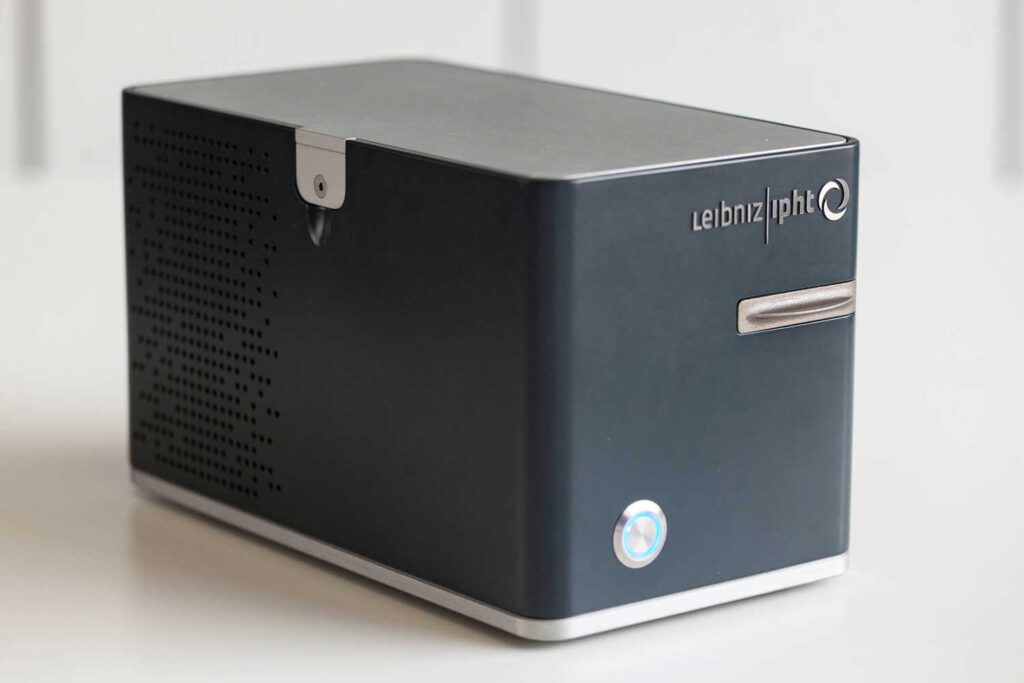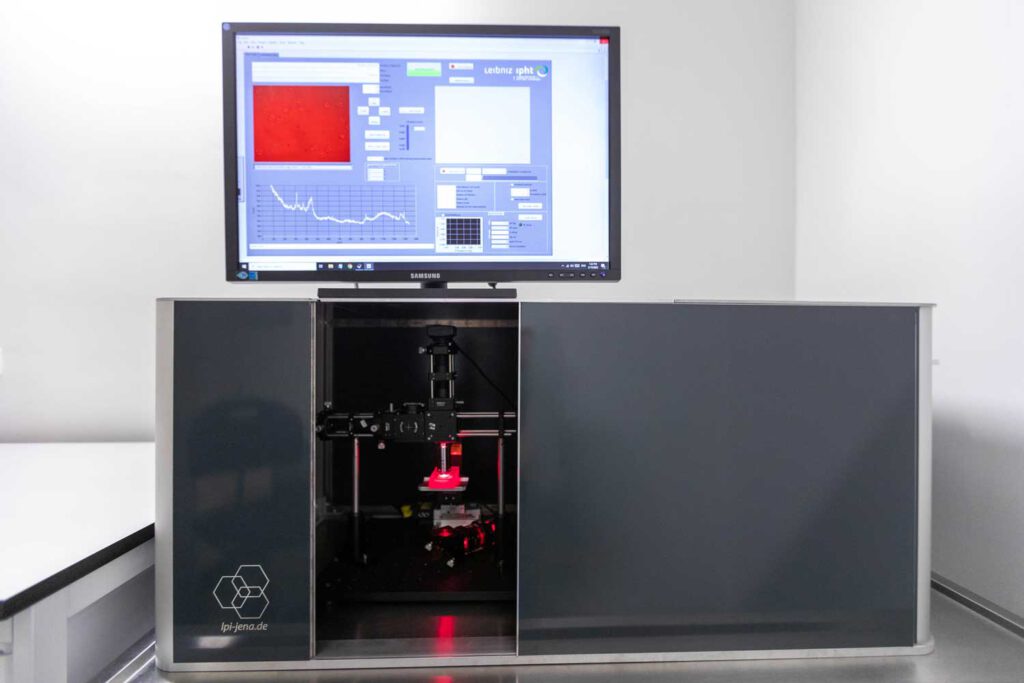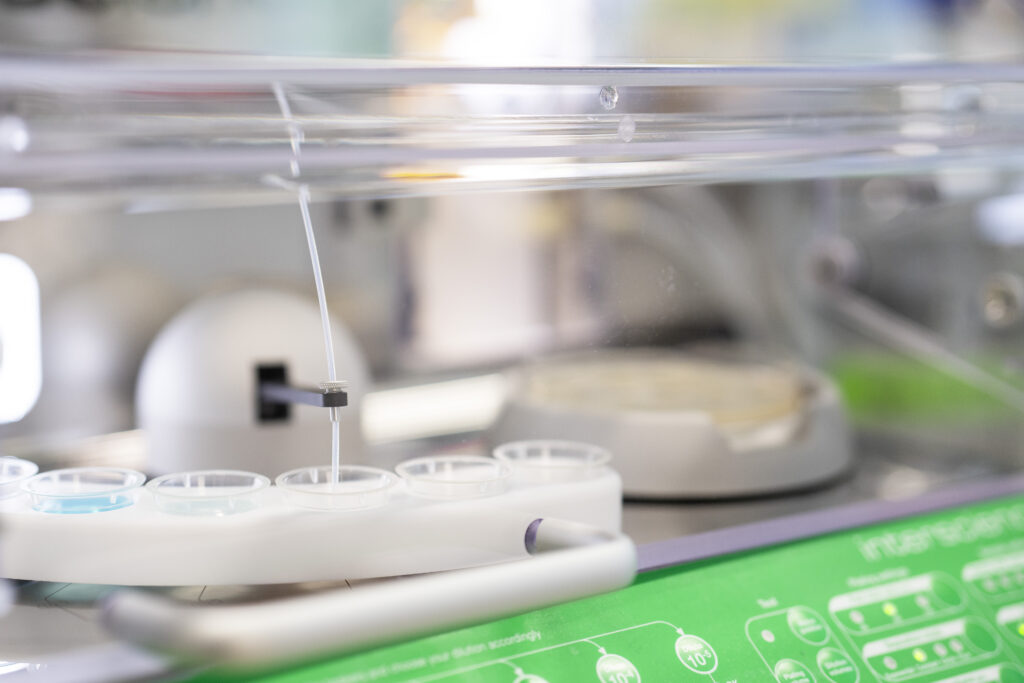The five basic technologies form the core of LPI’s state-of-the-art and globally unique infrastructure. They will make it much easier for users to translate their ideas and research results into applications.
At the LPI we complement state-of-the-art technologies with new photonic methods that are not commercially available today. In the future, users from science and industry will have access to a broad spectrum of unique light-based and molecular biological methods in combination with all the necessary technologies to accelerate the translation of new methods for diagnostics and treatment of infectious diseases.
In the course of 2021, the development of the LPI's technological infrastructure started: The Federal Ministry of Education and Research is funding five projects designated as basic technologies with around 50 million euros. Researchers from the four partner organizations are working in cross-institutional projects to increase the Technology Readiness Level (TRL) of the basic technologies in order to prepare them for their application in the LPI.
Multidimensional, Multimodal, Intelligent Imaging Platforms
Photonic Interaction Assays for POCT / High Throughput Platforms
Artificial Intelligence for Diagnostics and Therapy
Users of LPI should be able to rely on state-of-the-art analysis methods for the evaluation of diagnostic data sets when developing their own solutions. Within the framework of the project coordinated by Friedrich Schiller University Jena, methods based on artificial intelligence, machine learning and deep learning methods are being developed.
Coordinated by the Friedrich Schiller University Jena
Highly Parallel Profiling of the Host Response to Life-threatening Infections
In infections, the course of disease and reactions of the immune system, and thus a precisely fitting therapy, are very different and individual. In the project coordinated by the University Hospital Jena, light-based methods for accompanying diagnostics and monitoring of bodily functions are being researched in order to be able to quickly and precisely characterize the individual response to the pathogen, even when pressed for time in the intensive care unit.
Coordinated by the University Hospital Jena
Innovative Molecular and Biochemical Assays for Rapid Diagnostics, Drug Development and New Therapeutic Concepts
In order to be able to develop novel individualized forms of therapy in the future, scientists in the project coordinated by Leibniz-HKI are researching molecules and therapeutic microbes as well as certain proteins and antibodies, as an alternative to conventional antibiotics. Photonics-based molecular and biochemical assays are being developed for rapid diagnostics.
Coordinated by the Leibniz HKI





